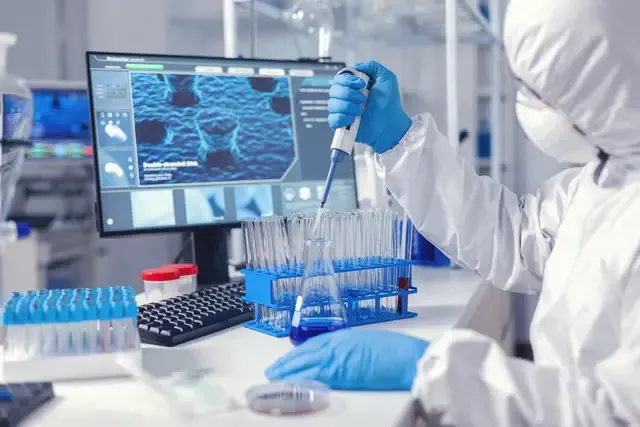 |
| DCStudio/FreePik |
The impact of Web3.0 extends not only to the Internet, but also to conservative industries. Many scientific discoveries are inaccessible or difficult to reproduce, and decentralized organizations are trying to change this situation. We tell you about 5 DAOs that are working in the biotechnology sector.
For decades, the biotechnology industry has operated under centralized models. Typically, scientists research a disease with public funds and then their patents end up in the hands of private companies. A growing number of organizations are trying to create an alternative to this model and democratize intellectual property and data in science.
DAOs consist of networks of users with a common purpose and common funding. They often have a say in the organization's resources through the purchase of digital tokens. In the case of DAOs that fund scientific research, intellectual property may be shared by the entire group, which accelerates collaboration among scientists and improves data reproducibility.
DAOs typically run on a decentralized digital ledger technology known as blockchain. This reflects the growing popularity of Web3, a form of the World Wide Web in which Web services are provided by vast decentralized networks rather than being controlled by central providers in the current Web2 structure.
The two leading software developers in this field who are leading the new wave of DAOs in the sciences are Molecule and SCINET.
The list of DAOs addressing major bottlenecks in biotechnology research is growing rapidly. Here are five of the most obvious examples to watch out for.
BioDAO
BioDAO was created to become a permanent industry standard for funding biotech research and early-stage drug development projects. This DAO aims to avoid the bias of traditional investors towards "star" labs and serial founders of biotech startups.
One can become a member of BioDAO by purchasing BIO tokens on the platform or earning them by contributing work or intellectual property. Token holders can vote on operational and strategic decisions made by the DAO.
BioDAO will initially focus on funding the development of artificial intelligence (AI)-based treatments and approaches in healthcare. Later, the company will focus on diagnostics and other technologies, such as meat farming. The ultimate goal is to fund 25 to 30 projects per year over the next five years.
Although BioDAO is a not-for-profit organization, it suggests that participants will also benefit in other ways, including increasing the demand for tokens and their value.
CureDAO
CureDAO is an open source platform designed to study the impact of food, drugs and supplements on human health.
Despite the dramatic increase in the amount of health data collected by apps over the past decade, healthcare costs have increased with no discernible improvement in public health. CureDAO attributes this result to a number of factors.
In particular, all these data are too fragmented to assess how lifestyles can be improved to prevent disease. In addition, numerous health apps tend to overlap in their functions, frustrating developers' efforts.
To overcome these limitations, the CureDAO platform enables users to collect and analyze health data, making it easier to understand how treatment and diet can affect disease. Anyone can donate data, intellectual property, programming and monetize custom add-ons to the platform. In return, they receive a portion of the revenue in tokens.
The platform is also aimed at digital health companies that want to reduce software development costs.
GenomesDAO
GenomesDAO is a UK-based project that positions itself as a counterpart to popular D2C genomic sequencing companies, such as 23andMe. These services offer to analyze the customer's genome and provide personalized information about their ancestry and health status. However, they often accumulate data on consumers and sell it.
GenomesDAO, in collaboration with Nebula Genomics, offers the same services. However, the data is stored on the company's blockchain, where it is encrypted and only available with the user's consent.

